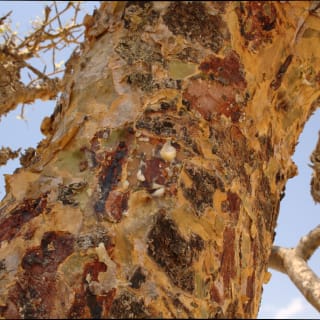
History of Oman
History of Oman
The territory of today’s Sultanate of Oman was already inhabited in the Stone Age. Around 2000 BC, Magan, as the region was called at that time, experienced a heyday of copper-mining.
From 563 BC, Oman was ruled by various Persian rulers. The Persians provided for the reconstruction of the overseas trade with India, Ceylon and East Africa. An important innovation that the Persians introduced were the so-called “Falaj“. These are channels that ensured the water supply in the villages and the irrigation of the fields and are still used today.
When in 630 AD, the population of Oman voluntarily accepted the faith of Islam, the Persians withdrew and Oman became part of the Umayyad and Ab
basis caliphate. Some Omanis emigrated to East Africa, thus establishing the supremacy of the Arabs in the western Indian Ocean. The port city of Sohar in the north of the country was the most important trading hub of the Islamic world due to its convenient location on the Strait of Hormuz. Trade relations could be established in East Africa, India and China. Oman at that time exported linen, cotton and wool products, e.g. Carpets. Conversely, ivory, gold, and spices from Africa, silk, porcelain, and jewels from China and teak from India were imported. After the destruction of Sohar, various Persian conquerors ruled the country until around the year 1500, the Portuguese took control of the island of Hormuz. The Portuguese wanted to destroy the monopoly of the Arabs in the East Asian trade and control the trade with India itself. The Omanis played a major role as intermediaries in the Indian trade, a position that the Europeans wanted to take on themselves. Finally, Vasco da Gama found the sea route to India and was able to expand the power of the Portuguese in the Indian Ocean. They destroyed the Omani cities of Muscat and Quriat and were able to control trade with India through their military superiority. Thus, they won the spice monopoly for Europe. At the end of the 16th century, the Portuguese were finally weakened by the British and the Dutch. Oman was able to unite against the invaders and expelled the Portuguese from their country in the mid-17th century. Oman could once again become the naval power in the Indian Ocean that it once was. Muscat became an important location between Arabia and India. The leading sultan conquered Zanzibar and other parts of the East African coast. Around 1750, the Said dynasty, which still governs the Sultanate, was founded. In 1798, Britain gained more and more influence in Oman. A contract between the Sultan and the East India Company, which secured the predominance of Great Britain in the Gulf region, was signed. By the middle of the 19th century, Oman was able to expand its power as far as never before. But the loss of Zanzibar in 1856 was followed by economic decline and dependency on Great Britain. It was only in 1968 that the British finally left. From 1932 to 1970, Sultan Said ibn Taimur, father of today’s Prime Minister Sultan Qaboos ibn Said, ruled the country. He left the state in its backwardness and foreign policy isolation. There continued to be slavery, high internal tariffs and the school system consisted entirely of Koranic schools. The oil production and government of Sultan Qaboos ibn Said, who replaced his father in 1970, brought with it far-reaching reforms. Slavery and the exit and travel restrictions were abolished. The infrastructure could be improved by the profits of oil production. Sultan Qaboos ibn Said is still the head of state of the Sultanate of Oman.
Discover Oman with experts who have called it their home
Your dream holiday, tailor-made by experts.
We don't just know Oman from books, we visit the country several times a year to experience the culture, landscape and people first-hand.
From your first enquiry to your return home, we are there for you personally - by phone, email or WhatsApp, whenever you need us. Our trips are as unique as you are: individually planned and provided with exclusive privileges and high-quality arrangements that will make your trip unforgettable.
Experts for your Oman trip









